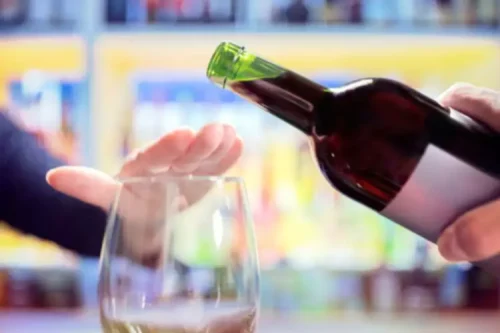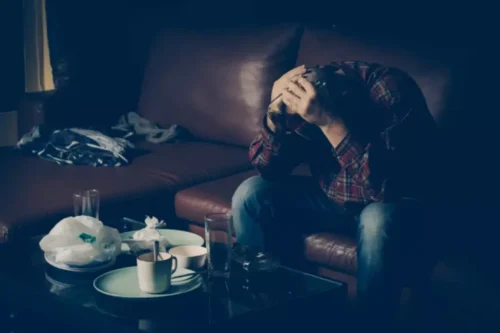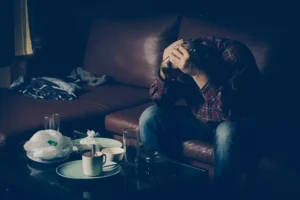Psychedelics and mental health: a population study

First, psychedelics have been studied in a limited number of populations and settings by a relatively small number of researchers and institutions, which has partly been in response to legal and regulatory restrictions. Despite broad recruitment efforts, it is possible that participants of studies to date are not representative of general adult populations with mental health or substance use disorders. For example, US studies have been predominantly conducted among young, mostly non-Hispanic white populations with moderate to severe disease and access to a clinical research center or treatment program.
SETTING CHARACTERISTICS OF INCLUDED PRIMARY STUDIES
Second, despite the use of low-dose placebos in some trials (eg, use of low-dose placebo MDMA in studies of MDMA-assisted psychotherapy for PTSD), many participants were able to correctly guess whether they were in the intervention or comparison groups (among trials that reported this information). Participant blinding was likely largely ineffective in studies that used a 0mg placebo, which may have Sober living house biased observed treatment effects. In a retrospective study35 of 75 adults in Brazil who underwent 1–9 ibogaine dosing sessions in conjunction with outpatient psychotherapy, 61% of participants reported abstinence.
- A statistically significant odds ratio greater than one indicates an association, and an odds ratio less than one indicates an inverse association.
- Available evidence also has unclear applicability to Veteran populations, as most studies did not include Veterans and none have been conducted in a VHA setting.
- We counted participants as having any lifetime psychedelic use if they affirmed use of LSD, psilocybin, mescaline, or peyote.
- However, human studies and clinical trials are only beginning to take place and we likely won’t see results for another couple of years.
- The program comprises four ESP Centers across the US and a Coordinating Center located in Portland, Oregon.
- Dr. Jill Stocker is traditionally trained in family medicine with advanced certification in age management medicine and hormone optimization.
The Future of Psychedelic Therapy
Participants receiving psilocybin experienced a significantly greater reduction in the percent of heavy drinking days and number of drinks per day compared to the diphenhydramine group at 32-week follow-up. Reduction in the percent of drinking days also favored psilocybin, but this finding was nonsignificant, and improvements on all outcomes were observed in both groups. The evidence on MDMA-assisted psychotherapy remains preliminary and several important research questions have yet to be addressed.
Cross-sectional and Case-control Studies

For all calculations we used SPSS/PASW Statistics (version 18.0.3) with the Complex Samples Module. The estimated associations between the use of psychedelics are presented as adjusted odds ratios (aOR), 95% confidence intervals (CI), and p-values. A statistically significant odds ratio greater than one indicates an association, and an odds ratio less than one indicates an inverse association. Because the mental health outcomes are all relatively uncommon, in this case, the odds ratio is a close approximation to the relative risk. For example, an adjusted odds ratio of 0.6 for a given outcome indicates that the rate of that outcome in psychedelic users is approximately 60% the rate in non-psychedelic users, after adjusting for control variables. Recent clinical trials have demonstrated promising results in using psychedelics to treat depression and anxiety.

Missing data.
- The Coordinating Center sought input from external peer reviewers to review the draft report and provide feedback on the objectives, scope, methods used, perception of bias, and omitted evidence (see Appendix D in Supplemental Materials for disposition of comments).
- Therefore, no statement in this article should be construed as an official position of the Department of Veterans Affairs.
- The exploration of psychedelics in mental health treatment marks an exciting and transformative period in medicine.
- Whether this level of treatment is feasible in everyday practice and whether treatment benefits may still be observed with lower intensity psychotherapy are questions for future research.
- Although results are fairly consistent and direct, trial sample sizes are small and at risk of prognostic imbalance (a failure of randomization to balance groups on participants’ responsiveness to treatment).
Observational studies, which mostly used a pre-post design, were limited by the potential for selection bias and lack of control groups. Despite the discovery of vaccines for COVID-19, one of the best security measures to contain the spread of the virus is social distancing and isolation. However, isolation might trigger negative mental outcomes, such as onset of a are psychedelics addictive depressive and anxious condition, increased consumption of alcohol and drugs, relapse to substances of abuse, and even induce post-traumatic stress disorder.
Study looked at ER trips, hospitalizations
Results may not be generalizable to more diverse populations and settings including within the Veterans Health Administration (VHA). Evidence on psychedelics for treatment of mental health and substance use disorders is therefore very preliminary. We suggest that this field is worthy of rigorous research to assess potential benefits, address safety parameters and clarify therapeutic mechanisms. To this end, we outline recent research findings, provide an overview of current knowledge relating to mechanisms of action and discuss salient aspects of the psychedelic-assisted psychotherapy treatment model. The sum of this research points towards medicinal psychedelics as a potential new class of psychiatric treatments when used within a medically supervised framework with integrated psychotherapeutic support. However, before widespread translation into clinical use can occur, appropriately designed and sufficiently powered trials are required to detect both potential positive and negative outcomes.

Psychedelic therapy must also overcome the stigma that surrounds both psychedelic drugs and mental health, which will take time and education, explains Nicholson. Medical professionals, insurance companies and regulatory bodies, both state and federal, will also have to back the therapy to improve accessibility. MDMA, also known as ecstasy or molly, was initially created in Germany in 1912 to help control bleeding.
- We used a standard alpha of 0.05; however any significant results should be considered in the context of the number of statistical analysis performed.
- Participants were enrolled in an 8-week treatment program consisting of 10 psychotherapy sessions, in 2 of which they received MDMA.
- Limitations of our review methods include our use of sequential review (rather than dual independent review) for data abstraction and risk of bias assessment.
- Naturally derived psychedelics have been used for millennia, often in the context of religious or spiritual practices.
- Psychedelic therapy must also overcome the stigma that surrounds both psychedelic drugs and mental health, which will take time and education, explains Nicholson.
- The findings and conclusions in this document are those of the author(s) who are responsible for its contents and do not necessarily represent the views of the Department of Veterans Affairs or the United States government.
Do people who’ve lost loved ones really experience encounters with them?
One observational study34 evaluated the use of ayahuasca among participants with mixed forms of substance use. In this Canadian pre-post study34 of 12 adults participating in a 4-day “Working with Addiction and Stress” retreat that incorporated ayahuasca ceremonies, the proportion of participants who reported using alcohol, tobacco, and cocaine declined. Psychedelics, specifically ayahuasca and ibogaine, have also been evaluated in uncontrolled observational studies as treatment for other substance use including cocaine and cannabis. Due to study methodologic limitations, small sample sizes, indirectness, and inconsistency, this evidence is insufficient to draw conclusions about the effects of ayahuasca and ibogaine on use of cocaine and cannabis.
Serious psychological distress
In most studies of depression, participants were not on other medical treatments for depression or were required to discontinue their usual treatments (usually antidepressant medications including selective serotonin reuptake inhibitors) for at least 2 weeks prior to the study period. Detail on whether studies did or did not require participants to discontinue their usual treatment are in Appendix C of the Supplemental Materials. MDMA-assisted psychotherapy for PTSD has been the most extensively studied therapeutic intervention involving psychedelics. Results from several small RCTs demonstrate that this treatment may improve PTSD symptom severity to a clinically meaningful degree and lead to disease remission for some individuals in the short term. However, study interventions included intensive psychotherapy protocols that may be challenging to implement in everyday practice. Moreover, US studies primarily enrolled young non-Hispanic white individuals and few studies included Veterans.
